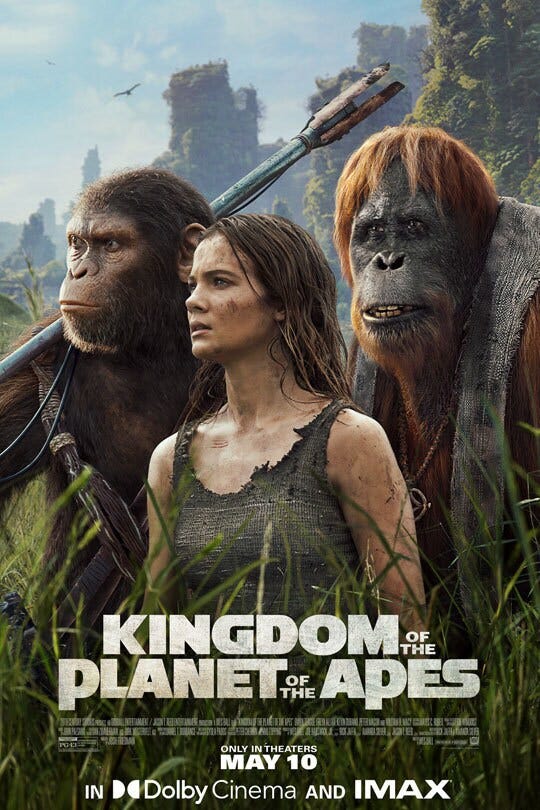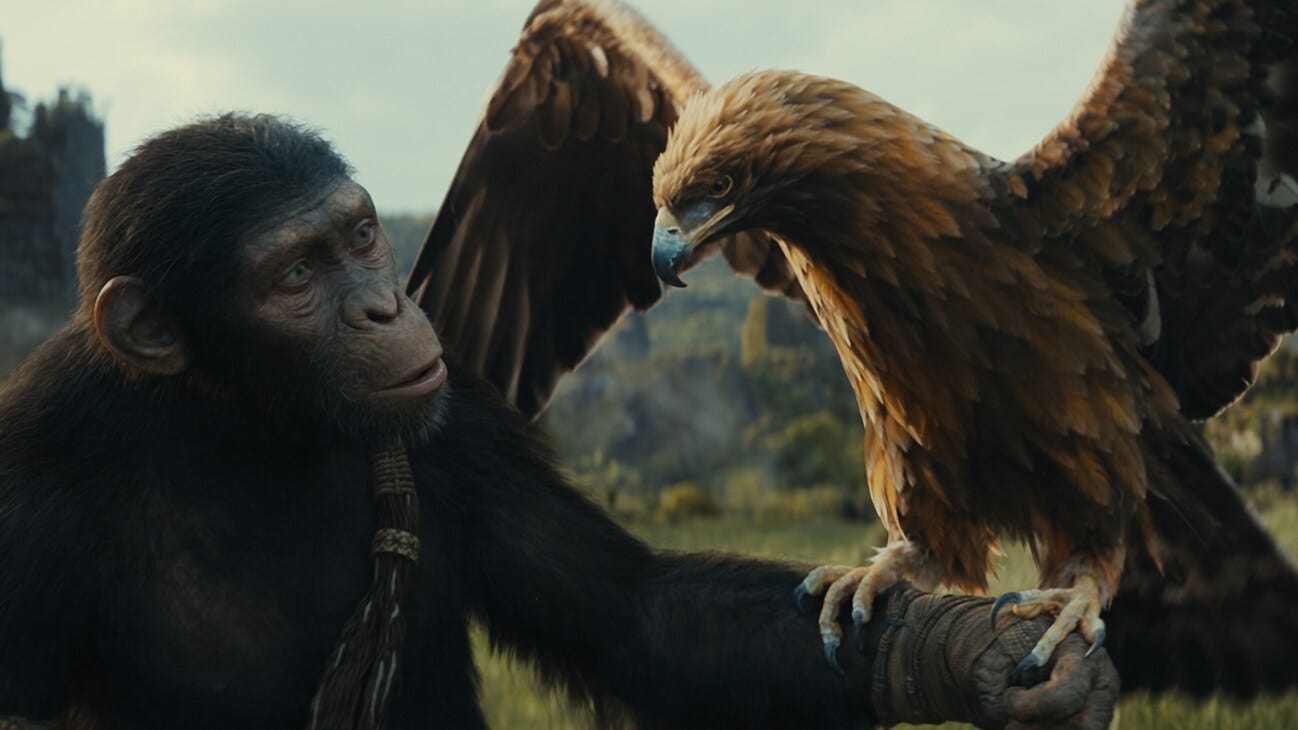
The Matt Reeves trilogy in the “Planet of the Apes” franchise is one of the best and least talked-about trilogies of modern times. They take an unflinching look at themes of animal cruelty, racial division, and war, not unlike the original films. Andy Serkis’s Caesar was a powerful character, and it was hard to imagine a new series being able to do what that trilogy did. But Wes Ball’s “Kingdom of the Planet of the Apes” does an excellent job of finding its own path.
We are now many generations past the reign of Caesar. Three young apes, Noa (Owen Teague), Soona (Lydia Peckham), and Anaya (Travis Jeffery), are going to choose the eagle eggs that they will bond with, as their clan is known for raising eagles. But before they are able to go through the bonding ceremony, their village is attacked by the masked apes led by Proximus Caesar (Kevin Durand). The masked apes follow a perverted version of Caesar’s laws and kill or kidnap everyone except for Noa. When Noa goes to find his community, he meets Raka (Peter Macon), an orangutan who follows the original Caesar, and a human, Mae (Freya Allan), who is more cunning than she appears.

This film had a lot to live up to, and it managed to do that. The emotional beats are there, the animation is there, and the themes are there. What made this impressive is that it is able to look back with reverence while also looking forward. This is a movie that is enriched by knowledge of the Reeves trilogy but is not dependent on it.
The voice acting is solid throughout. Like Maurice in the Reeves films, Raka steals every scene he’s in, and the addition of Macon’s voice acting takes it to another level. Allan gives a powerful, nuanced performance as one of the only human characters in the movie. And Durand commands the screen as the authoritarian leader Proximus. Some of the voice acting for the young apes didn’t quite work because their voices felt a little too human, but it wasn’t necessarily bad.

The story was what worked most effectively. While this film explored some familiar themes, it also added the idea of different groups interpreting the same words in diverse and sometimes harmful ways. Seeing Caesar’s words twisted for the goals of a single autocrat was a fascinating turn. And while human-ape relationships are always complicated in Planet of the Ape movies, this one took a different look at them, one that will be interesting to see unfold in future movies.
Sci-fi has always been one of the best genres for tackling social issues in a way that feels less on the nose, and the “Planet of the Apes” franchise has always capitalized on that. “Kingdom of the Planet of the Apes” does that in a way that is both a fun action movie and a thoughtful exploration of deeper themes.
This review originally appeared in The Dominion Post on May 12, 2024.




Good review! I totally agree that it's one of the "best and least-talked about" trilogies, and I don't know why!